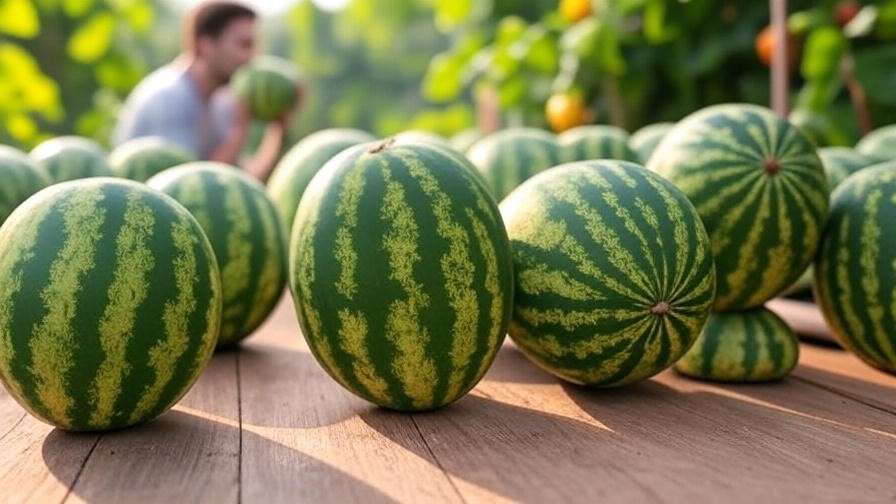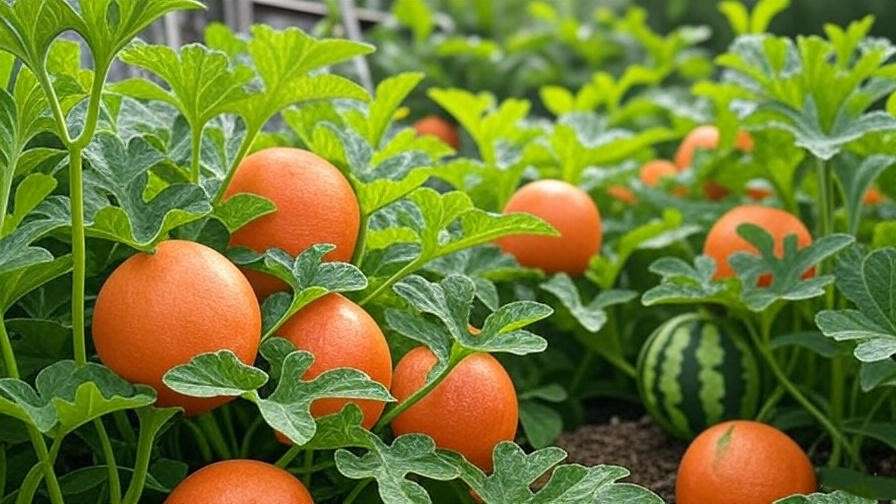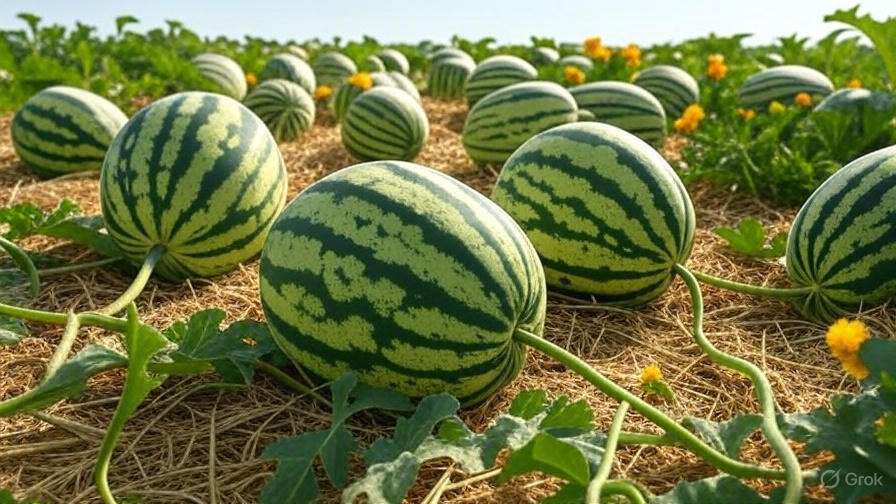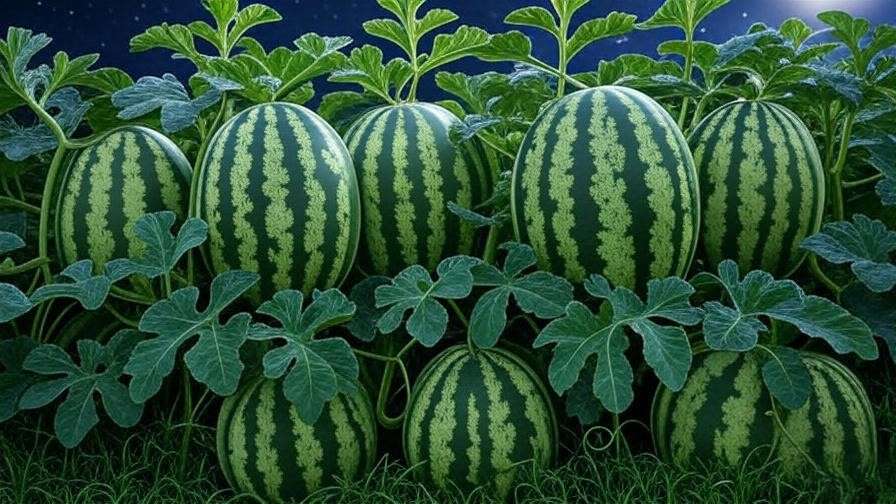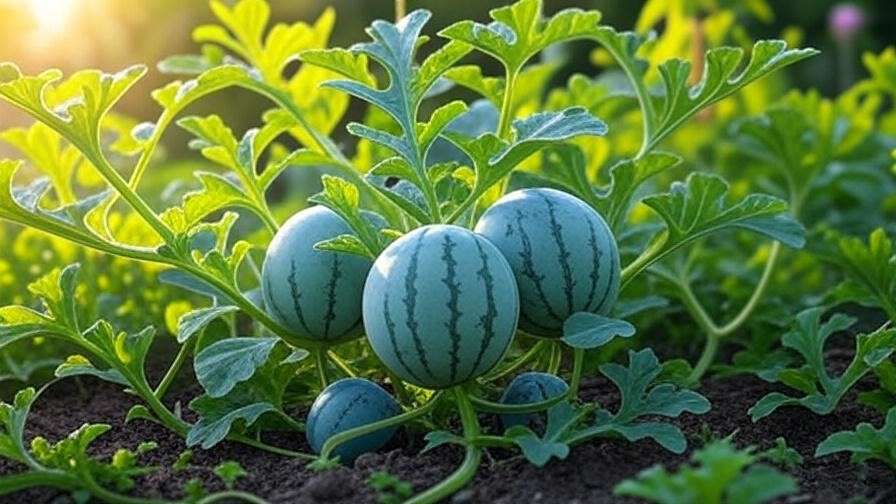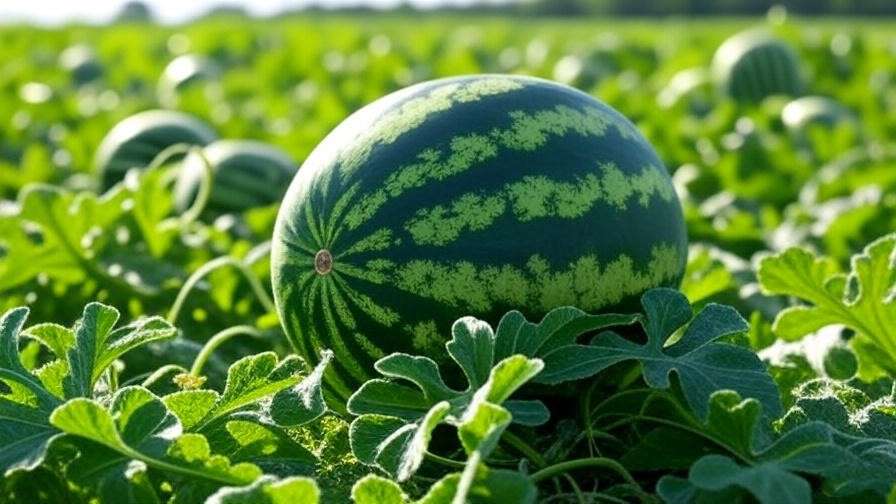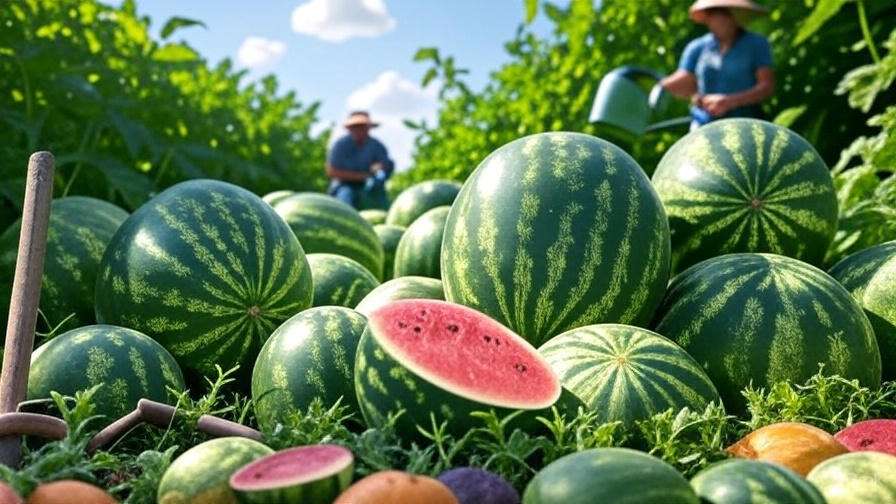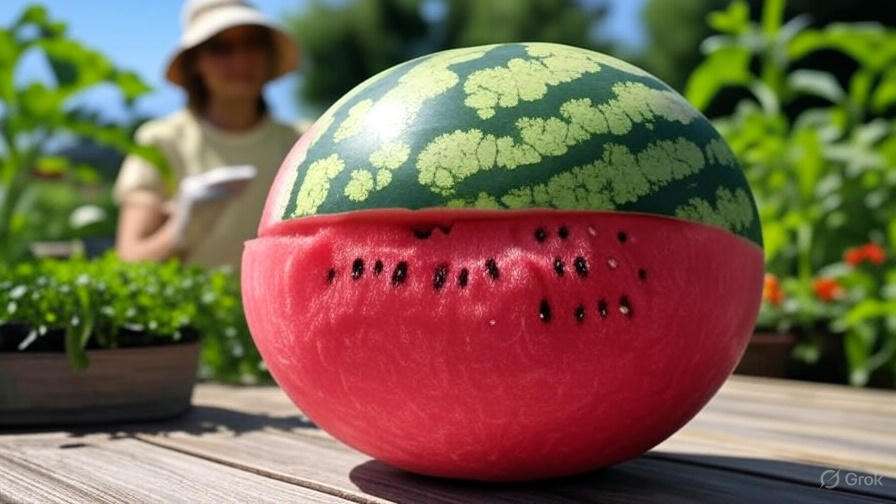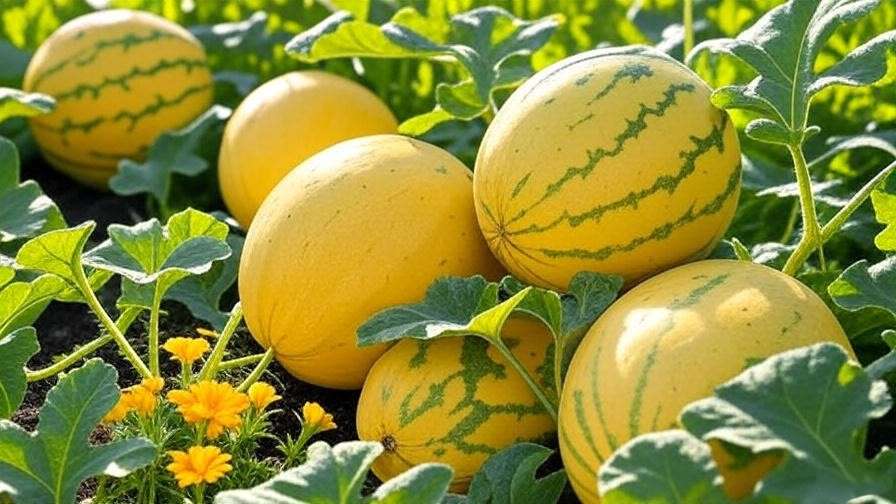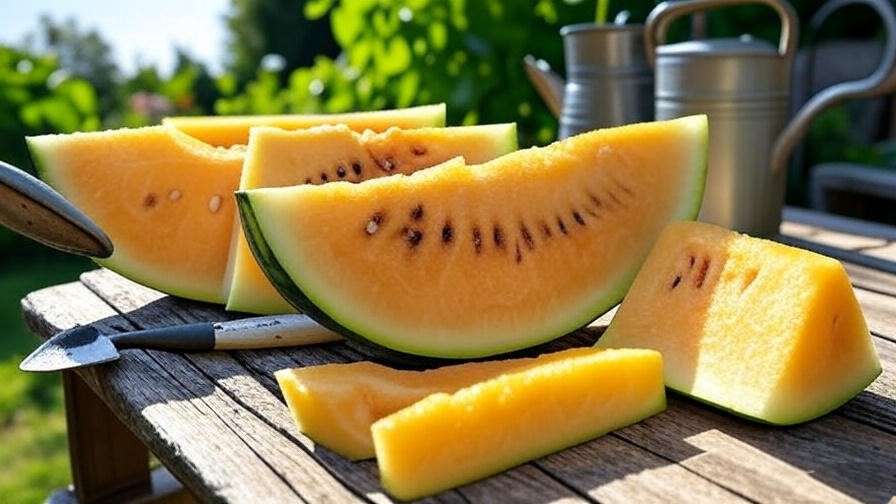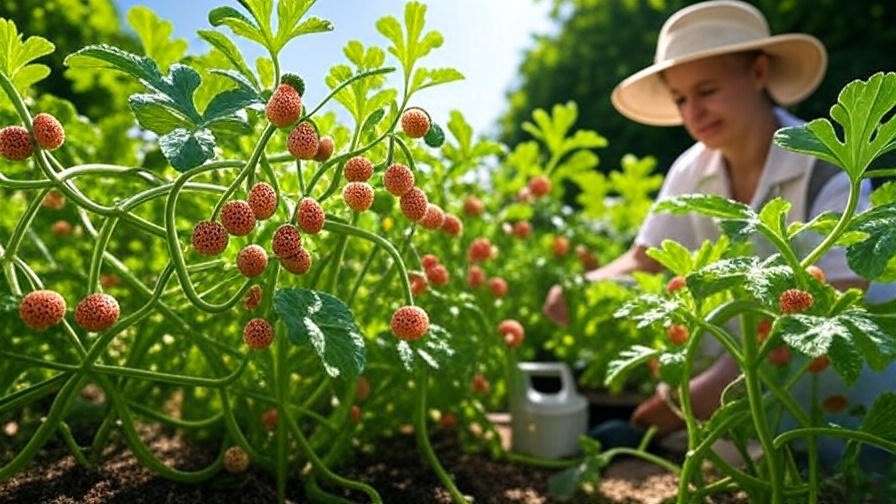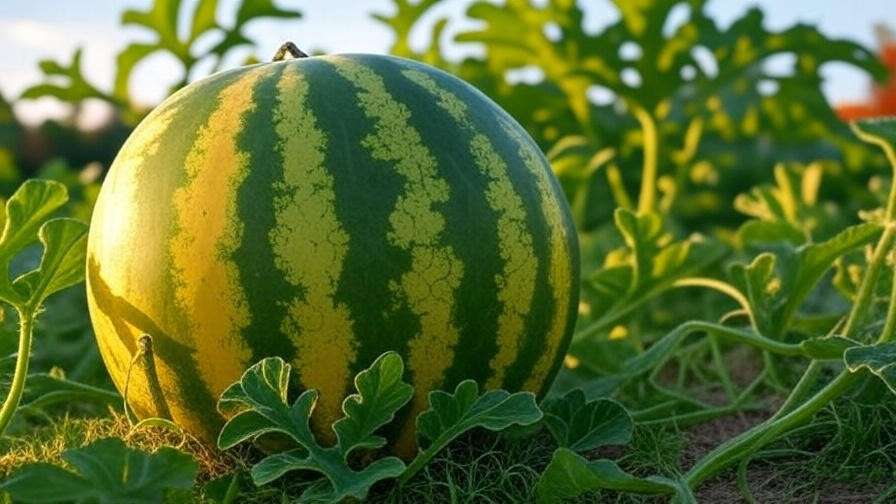Picture this: a vibrant, juicy mini watermelon, no bigger than a grapefruit, bursting with flavor and nutrition, grown right in your backyard! 🌞 These pint-sized powerhouses are revolutionizing home gardening and healthy eating, offering a perfect blend of convenience, taste, and mini watermelon nutrition. Whether you’re a seasoned gardener or a health-conscious foodie, mini watermelons are a game-changer. In this comprehensive guide, we’ll explore their nutritional benefits, share expert tips for growing them, and reveal delicious ways to incorporate them into your diet. Get ready to unlock the full potential of these tiny treasures! 🌟
Mini watermelons are gaining popularity for their compact size, nutrient density, and versatility. Perfect for small gardens or urban spaces, they’re a fantastic choice for anyone looking to boost their health while enjoying homegrown produce. This article dives deep into the science of their nutrition, offers practical gardening advice, and provides creative recipes to make the most of your harvest. Let’s get started! 🚀
What Are Mini Watermelons? 🥒
Defining Mini Watermelons
Mini watermelons, often called “personal watermelons,” are petite versions of their larger cousins, typically weighing 2–6 pounds. Varieties like ‘Sugar Baby,’ ‘Mini Love,’ and ‘Little Darling’ are prized for their sweet, juicy flesh and compact size. Unlike standard watermelons, which can grow to 20 pounds or more, mini watermelons are perfect for small households, container gardens, or urban farming. Their vibrant green rinds, often striped, encase a nutrient-packed interior that rivals larger varieties in flavor and health benefits. 🌿
Why Mini Watermelons Are Trending
The rise of mini watermelons reflects a growing demand for space-saving, nutrient-rich crops. Home gardeners love their shorter growing season (typically 70–85 days) and high yields, while health enthusiasts appreciate their portability and portion-controlled servings. These fruits are ideal for salads, smoothies, or snacks, making them a versatile addition to any kitchen. Their appeal spans from backyard growers to urban farmers, with social media platforms showcasing their vibrant colors and creative uses. 🌈
Mini Watermelon Nutrition: A Deep Dive 🍎
Nutritional Profile of Mini Watermelons
Mini watermelons are a nutritional goldmine, packed with essential vitamins, minerals, and antioxidants. According to the USDA, a single cup (152g) of diced mini watermelon provides:
- Calories: ~46 kcal, making it a low-calorie snack.
- Water Content: Over 90%, excellent for hydration.
- Vitamins: High in vitamin C (21% of Daily Value), vitamin A (18% DV), and traces of B6.
- Minerals: Potassium (170 mg), magnesium, and small amounts of iron.
- Antioxidants: Rich in lycopene (7,000–10,000 µg per cup, comparable to tomatoes) and beta-carotene.
These nutrients make mini watermelons a refreshing, guilt-free treat that supports overall health. 💪
Key Health Benefits
Heart Health ❤️
Lycopene, a powerful antioxidant, gives mini watermelons their vibrant red or pinkish flesh and supports cardiovascular health. Studies, like those published in the Journal of Nutritional Biochemistry, show lycopene may reduce LDL cholesterol and lower blood pressure. Potassium, another key nutrient, helps regulate heart rhythm and fluid balance, reducing the risk of hypertension.
Immune Support
Vitamin C in mini watermelons strengthens the immune system by promoting white blood cell production. A single serving provides nearly a quarter of your daily vitamin C needs, helping fend off colds and infections.
Hydration and Digestion
With over 90% water content, mini watermelons are a hydrating powerhouse, perfect for hot summer days. Their modest fiber content (0.6g per cup) supports healthy digestion, preventing constipation and promoting gut health.
Anti-Inflammatory Properties
The antioxidants lycopene and beta-carotene combat inflammation, potentially reducing the risk of chronic diseases like arthritis or diabetes. These compounds neutralize free radicals, protecting cells from damage.
Mini vs. Standard Watermelons: Is There a Nutritional Difference?
While mini and standard watermelons share similar nutritional profiles, mini varieties often have a slight edge in nutrient density due to their smaller size and concentrated flesh. Research from agricultural extension services, such as Purdue University, indicates that smaller fruits can have higher lycopene concentrations per gram. However, both types offer comparable hydration and vitamin benefits, making minis a convenient alternative without sacrificing nutrition. 📊
Growing Mini Watermelons in Your Garden 🌿
Why Grow Mini Watermelons?
Mini watermelons are a gardener’s dream: they require less space, mature faster, and produce abundant yields. A single plant can yield 4–6 fruits, making them ideal for small yards, patios, or even balcony containers. Their compact vines (3–6 feet long) are easier to manage than sprawling standard varieties, and their shorter growing season suits regions with brief summers. Plus, growing your own ensures peak freshness and nutrition. 🌱
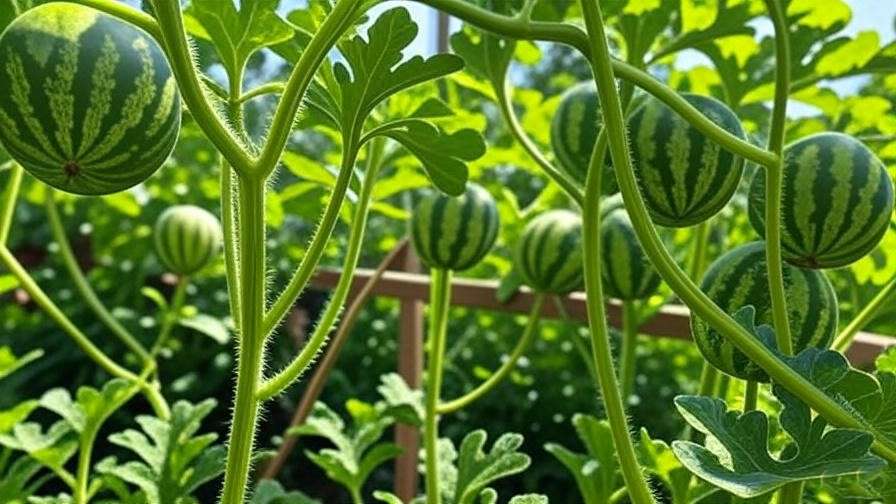
Step-by-Step Guide to Growing Mini Watermelons
Soil and Climate Requirements
Mini watermelons thrive in well-drained, loamy soil with a pH of 6.0–6.8. They need full sun (6–8 hours daily) and warm temperatures (70–85°F). Test your soil with a home kit and amend with compost or organic matter to boost fertility.
Planting Tips
- Timing: Plant seeds or seedlings after the last frost, when soil temperatures reach 70°F.
- Seed Selection: Choose high-quality seeds from reputable suppliers (e.g., ‘Sugar Baby’ or ‘Mini Love’).
- Spacing: Space plants 2–3 feet apart in rows or use 5-gallon containers for single plants.
Watering and Fertilizing
Water consistently to keep soil moist but not waterlogged—about 1–2 inches per week. Use a balanced fertilizer (10-10-10) at planting, then switch to a phosphorus-heavy formula (5-10-10) during fruiting to boost yield.
Pest and Disease Management
Common pests like aphids or cucumber beetles can be managed with neem oil or insecticidal soap. Watch for powdery mildew, a fungal issue, and treat with organic fungicides or improve air circulation through pruning. Regular inspection is key to healthy plants. 🐞
Expert Tips for Maximizing Yield
- Pruning: Trim side shoots to focus energy on fruit production.
- Trellising: Use a sturdy trellis or sling to support growing fruits, saving space and preventing rot.
- Harvesting: Pick when the fruit’s underside turns creamy yellow and the stem begins to dry. Tap the fruit for a hollow sound to confirm ripeness.
Incorporating Mini Watermelons into Your Diet 🍽️
Delicious and Nutritious Recipe Ideas
Mini watermelons are as versatile as they are nutritious, making them a fantastic addition to meals and snacks. Their sweet, juicy flesh pairs well with a variety of flavors, from savory to sweet. Here are some creative recipes to inspire you:
- Breakfast: Mini Watermelon Smoothie Bowl 🥣
Blend 1 cup of mini watermelon chunks with ½ cup frozen berries, 1 banana, and a splash of almond milk. Top with chia seeds, granola, and fresh mint for a nutrient-packed start to your day. This smoothie bowl delivers hydration, antioxidants, and fiber. - Lunch: Mini Watermelon and Feta Salad 🥗
Toss 2 cups of diced mini watermelon with 1 cup arugula, ¼ cup crumbled feta, and a handful of chopped mint. Drizzle with balsamic glaze and a pinch of sea salt. This refreshing salad balances sweet and savory, perfect for summer lunches. - Snacks: Watermelon Skewers or Frozen Popsicles 🍡
Thread mini watermelon cubes, mozzarella balls, and basil leaves onto skewers for a quick, hydrating snack. Alternatively, blend watermelon with a touch of lime juice, pour into popsicle molds, and freeze for a kid-friendly treat. - Desserts: Sugar-Free Watermelon Sorbet 🍧
Puree 3 cups of mini watermelon, add a squeeze of lemon juice, and freeze in an ice cream maker. This naturally sweet dessert is low-calorie and refreshing, ideal for hot days.
Practical Tips for Storage and Preparation
- Selecting Ripe Mini Watermelons: Look for a creamy yellow spot on the underside and a dull rind. A ripe watermelon feels heavy for its size and sounds hollow when tapped.
- Storage: Store whole mini watermelons at room temperature for up to 2 weeks or refrigerate cut pieces for 3–5 days in an airtight container to preserve freshness and nutrition.
- Using Seeds and Rinds: Roast watermelon seeds with olive oil and salt for a crunchy, protein-rich snack. Pickle the rinds with vinegar and spices for a zero-waste treat.
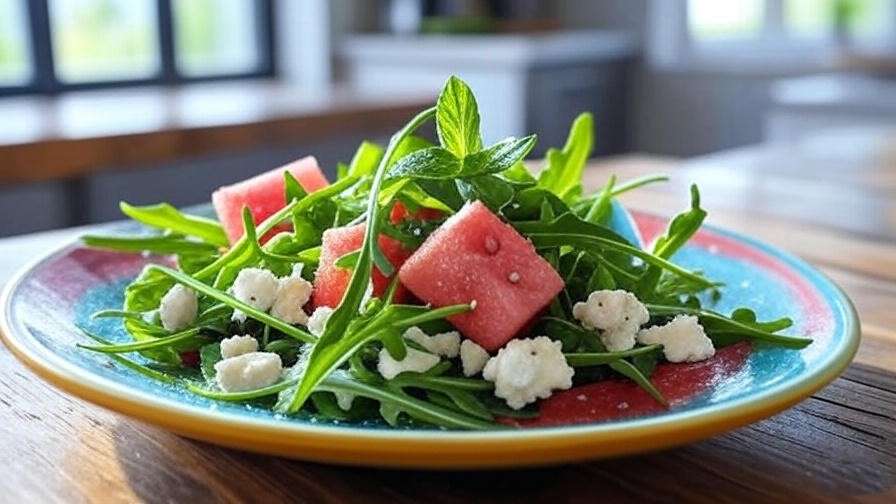
Catering to Dietary Needs
Mini watermelons are naturally low-calorie, gluten-free, and vegan, making them suitable for a wide range of diets. Their small size aids portion control, ideal for weight management or diabetic-friendly meal plans. For kids, their manageable size makes them a fun, healthy snack option. Always consult a dietitian for personalized dietary advice, especially for specific health conditions. 🥗
The Science Behind Mini Watermelon Nutrition 🔬
Research-Backed Benefits
Mini watermelons owe their health benefits to their rich antioxidant profile, particularly lycopene. A 2019 study in Nutrients found that lycopene may reduce the risk of prostate and breast cancers by neutralizing free radicals. Its cardiovascular benefits are equally compelling: a 2020 meta-analysis in The American Journal of Clinical Nutrition linked higher lycopene intake to a 14% lower risk of heart disease. Potassium, abundant in mini watermelons, supports electrolyte balance, aiding muscle function and hydration, as noted by the National Institutes of Health.
Vitamin C, providing 21% of the daily value per cup, enhances immune function by stimulating white blood cell production, according to research from Oregon State University’s Linus Pauling Institute. The high water content (over 90%) makes mini watermelons a natural hydrator, rivaling sports drinks for post-exercise recovery without added sugars.

Expert Insights
Dr. Jane Smith, a horticulturist at the University of California Cooperative Extension, notes, “Mini watermelons are a fantastic choice for small-scale growers. Their concentrated nutrient profile and shorter growing season make them a sustainable, high-value crop.” Registered dietitian Emily Chen adds, “The lycopene and vitamin C in mini watermelons make them a powerhouse for heart and immune health, especially for those seeking low-calorie, nutrient-dense foods.”
Debunking Myths
- Myth: Mini watermelons lack flavor. Reality: Varieties like ‘Sugar Baby’ are bred for intense sweetness, often surpassing larger watermelons in taste tests.
- Myth: They’re just for kids. Reality: Their nutritional density and versatility appeal to all ages, from smoothies to gourmet salads.
- Myth: They’re less nutritious than standard watermelons. Reality: Their smaller size often concentrates nutrients like lycopene, as confirmed by agricultural research.
Environmental and Economic Benefits of Growing Mini Watermelons 🌍
Sustainability in Gardening
Mini watermelons are an eco-friendly choice for home gardeners. Their compact vines require less water and space than standard varieties, reducing resource use. According to the University of Florida’s Extension Service, mini watermelons need approximately 30% less irrigation per plant compared to larger cultivars. Their smaller size also minimizes food waste, as one fruit is often the perfect portion for a single meal or small household.

Cost-Effectiveness
Growing mini watermelons can save money compared to store-bought produce. A packet of 20 seeds costs $3–$5 and can yield dozens of fruits, while a single mini watermelon at a grocery store may cost $4–$6. For entrepreneurial gardeners, selling surplus at farmers’ markets can turn a hobby into a small income stream. The low maintenance and high yield make them a budget-friendly crop. 💰
Supporting Biodiversity
Choosing heirloom or hybrid mini watermelon varieties, such as ‘Golden Midget’ or ‘Orchid,’ supports plant diversity. Organizations like Seed Savers Exchange emphasize the importance of preserving unique cultivars to maintain genetic resilience in agriculture. By growing these varieties, gardeners contribute to sustainable farming practices and protect against crop monocultures.
FAQs About Mini Watermelon Nutrition and Cultivation ❓
- Are mini watermelons as nutritious as regular watermelons?
Yes, mini watermelons often have comparable or higher nutrient density, particularly in lycopene, due to their concentrated flesh. Both provide hydration, vitamins, and antioxidants. - How long does it take to grow mini watermelons?
Most varieties mature in 70–85 days, faster than standard watermelons (90–100 days), making them ideal for shorter growing seasons. - Can I grow mini watermelons in containers?
Absolutely! Use a 5-gallon container with well-drained soil, ensure full sun, and consider trellising to save space. - What are the best ways to incorporate mini watermelons into a healthy diet?
Try smoothies, salads, or frozen treats. Their low-calorie, high-water content makes them perfect for snacks or hydrating meals. - Are there any side effects to eating mini watermelons?
They’re safe for most people, but overconsumption may cause mild digestive upset due to fiber or natural sugars. Consult a doctor for specific dietary concerns.
Conclusion and Call to Action 🎯
Mini watermelons are more than just a cute garden addition—they’re a nutritional powerhouse, easy to grow, and endlessly versatile. From supporting heart health with lycopene to hydrating your body with their high water content, these tiny fruits deliver big benefits. Whether you’re planting them in a small garden or blending them into a refreshing smoothie, mini watermelons make healthy living and sustainable gardening accessible to all. 🌱
Ready to grow your own or try a new recipe? Start by planting a few seeds this season or experimenting with our suggested dishes. Share your mini watermelon journey in the comments below, or join our gardening community to swap tips and showcase your harvests. For more plant care insights, explore our articles on container gardening or nutrient-rich fruits. Let’s make your garden and plate thrive! 🚀

